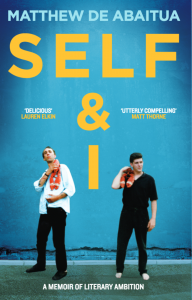 “My mouth is full of blood but I’m not even angry. This is my true rite of passage: punched in the face I remain eminently reasonable. That is what marks me out as ready for the middle class: that I can defer gratification, stifle fury, for some putative future gain. I may be six foot two, fourteen stone of muscle and one stone of fat, but I will never be good at fighting because I will always have to calculate whether to hit back or not. Because there is no aspect of my life that a brawl improves, no problem that can be solved with violence. And yet, as a young man, you give up that aspect of your persona reluctantly, want to hint that you can put yourself about. Eddie could dish it out. In the riot at Cantril Farm, he fought hand-to-hand against the rioters for hours.”
“My mouth is full of blood but I’m not even angry. This is my true rite of passage: punched in the face I remain eminently reasonable. That is what marks me out as ready for the middle class: that I can defer gratification, stifle fury, for some putative future gain. I may be six foot two, fourteen stone of muscle and one stone of fat, but I will never be good at fighting because I will always have to calculate whether to hit back or not. Because there is no aspect of my life that a brawl improves, no problem that can be solved with violence. And yet, as a young man, you give up that aspect of your persona reluctantly, want to hint that you can put yourself about. Eddie could dish it out. In the riot at Cantril Farm, he fought hand-to-hand against the rioters for hours.”
For Will Self, it was a strange interlude. For Matthew De Abaitua, it was the beginning of everything.
“In the Nineties, everywhere – from a system of sea caves to a transit van looping around the M25, from a ruined abbey on the Yorkshire Moors to a loading bay in Shoreditch – was a great place to have a party. And our social relations were conducted as if we were at a long party, always intoxicated, with nothing taken too seriously, and all unpleasantness put off until tomorrow.
Andy had stumbled on the vital truth about the Nineties: it may have been a soft-headed, heaving mass of meretricious triangulation but it was also a great place to have a party.”
In 1994 and fresh from a year on Malcolm Bradbury’s famous creative writing program at the University of East Anglia, Matthew De Abaitua is offered the apprenticeship of his dreams: a six-month stint as amanuensis to Will Self, living and working beside his employer in a rented cottage in rural Suffolk. Self is on the Granta List, the newly anointed enfant terrible of English letters. Bogged down in the quagmire of publicity and celebrity journalism’s New Glib, he is anxious to get started on a new fiction project. De Abaitua has not published anything yet. He knows only that he passionately – desperately – wants to be a writer. He hopes the next six months will change his life.
Self & I is a little classic. A unique insight into the mindset and working methods of one of the key writers to have emerged from the post-Thatcher years, it is also a manifesto, in a sense, for beginning writers, a wrestling over some of the questions of what it means to be a writer in today’s Britain. De Abaitua provides stunning chapters on his brief stint as a security guard in Liverpool’s docklands, his complex relationship with his working class background and the inevitable, inexorable decay of adolescent allegiances. Above all, his search for a subject – the ever-present conflict, in young writers, between talent and inexperience – is related in pitiless detail. Will Self emerges from the narrative as a curiously lonely, driven individual, relentlessly in pursuit of his goals and harried by his personal demons – a typical writer, in other words. De Abaitua struggles with doubt, finally coming out on top but bruised from the tussle. For this writer at least there is no such thing as a redemption arc. The war is ongoing.
For anyone who experienced the Nineties in Britain first hand, there will be plenty of laugh-out-loud moments here. De Abaitua captures the ridiculous self-entitlement of the time, the blindness-to-impending disaster, with wit and accuracy. There is also much to interest the science fiction reader. One of De Abaitua’s tasks as Self’s amanuensis was to transcribe hours of taped interviews between Self and J. G. Ballard. Ballard’s pinpoint analysis of the intellectual decline of science fiction through the eighties – and De Abaitua’s ruminations upon it – provide some of the standout moments of the book for me, and anyone interested in current science fiction criticism should read this account.
Self & I is a candid and revealing portrait of a particular artist at a particular time. It is De Abaitua’s book far more than Self’s, and coming from a writer who has already provided us with some of the most original and brilliantly executed science fiction of the past decade, it should be counted as a significant achievement. We await his next project eagerly, and with anticipation.